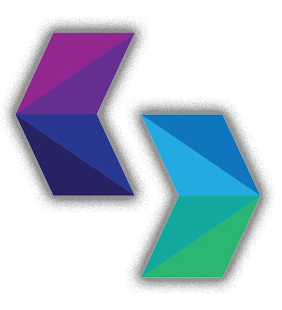Flutter vs Web Development: Unraveling the Ideal Choice for Your Project
Introduction
In today’s fast-paced digital world, mobile applications and web development have become essential for businesses and individuals alike. As the demand for feature-rich, user-friendly, and efficient applications increases, developers face the crucial decision of selecting the right technology stack for their projects. Two popular options that often come into the spotlight are Flutter and Web Development. In this article, we’ll dive deep into these technologies, exploring their features, pros, cons, and ideal use cases. By the end, you’ll have a clear understanding of which one suits your project best.
Understanding Flutter
2.1 What is Flutter?
Flutter, developed by Google, is an open-source UI software development kit used for crafting natively compiled applications for mobile, web, and desktop from a single codebase. It uses the Dart programming language, which provides a reactive and component-based structure, enabling developers to build visually appealing, fast, and responsive apps.
2.2 Pros of Flutter
- Single Codebase: One of Flutter’s most significant advantages is the ability to write a single codebase for multiple platforms, reducing development time and effort.
- Hot Reload: Flutter’s hot reload feature allows developers to see changes instantly, speeding up the development process and facilitating rapid iterations.
- Rich UI Components: Flutter offers a wide range of customizable widgets and components, making it easier to create stunning user interfaces.
- High Performance: The apps built with Flutter deliver high performance and smooth animations, as they are compiled to native code.
2.3 Cons of Flutter
- Limited Libraries: While Flutter has a growing ecosystem, it may have fewer third-party libraries compared to more established frameworks.
- Large App Size: Due to the inclusion of Flutter’s engine in the app package, the size of the app might be larger than those developed with native frameworks.
- Immature Web Support: Although Flutter allows web development, it’s relatively new, and some features may still be under development.
2.4 Ideal Use Cases for Flutter
- Cross-platform Apps: Flutter is an excellent choice for businesses aiming to develop applications that can run on both iOS and Android platforms.
- Prototyping and MVPs: The hot reload feature makes Flutter ideal for rapid prototyping and building Minimum Viable Products (MVPs) quickly.
Exploring Web Development
3.1 What is Web Development?
Web Development refers to the process of building websites or web applications using a combination of front-end and back-end technologies. Front-end technologies like HTML, CSS, and JavaScript are responsible for the visual and interactive elements, while back-end technologies handle server-side processes and database interactions.
3.2 Pros of Web Development
- Platform Independence: Web applications can be accessed from any device with a web browser, making them platform-independent.
- Easy Deployment: Unlike mobile apps, web applications don’t require approval from app stores, making the deployment process quicker and more straightforward.
- Vast Ecosystem: Web development has a mature ecosystem with a wide range of frameworks, libraries, and tools available for developers.
- SEO-Friendly: Web applications are more discoverable by search engines, improving their visibility and reach.
3.3 Cons of Web Development
- Internet Dependency: Web applications require an internet connection to function, which can be a limitation in some scenarios.
- Performance Limitations: Web apps may not match the performance of native applications, especially for graphics-intensive tasks.
- Security Concerns: Web applications face security risks, and developers need to implement robust security measures.
3.4 Ideal Use Cases for Web Development
- Content-Based Platforms: Websites that primarily focus on delivering content, such as blogs, news portals, and informational websites, are ideal candidates for web development.
- E-commerce Websites: Online stores benefit from web development due to the platform independence and ease of access.
Flutter vs Web Development: A Detailed Comparison
4.1 Performance
Flutter boasts impressive performance due to its natively compiled code. Since it doesn’t rely on WebView or JavaScript bridges, it can achieve smooth animations and responsiveness. On the other hand, web applications might face performance limitations, especially when handling complex graphics and animations, as they are dependent on the browser’s capabilities.
Code Example:
// Flutter Performance Code Example
void main() {
runApp(MyApp());
}
class MyApp extends StatelessWidget {
@override
Widget build(BuildContext context) {
return MaterialApp(
home: Scaffold(
appBar: AppBar(
title: Text('Flutter Performance'),
),
body: Center(
child: Text('Hello, Flutter!'),
),
),
);
}
}
4.2 User Interface
Flutter’s user interface capabilities are one of its strengths. With a vast array of customizable widgets, developers can create visually appealing and engaging interfaces. In contrast, web development relies on HTML, CSS, and JavaScript for UI rendering, which may require more effort to achieve a polished and consistent look across different browsers.
Code Example:
<!-- Web Development UI Code Example -->
<!DOCTYPE html>
<html>
<head>
<title>Web Development UI</title>
</head>
<body>
<h1>Hello, Web Development!</h1>
</body>
</html>
4.3 Development Time
Flutter’s single codebase and hot reload feature make development faster and more efficient. Changes are instantly reflected in the app, reducing the time spent on debugging. In contrast, web development requires testing across various browsers and devices, potentially extending the development time.
4.4 Community and Support
Both Flutter and web development have active communities and solid support. Flutter benefits from being backed by Google, while web development’s long-standing presence has led to a vast knowledge base and numerous resources.
4.5 Learning Curve
Flutter’s reactive and component-based structure might have a steeper learning curve for developers unfamiliar with the Dart language. In contrast, web development technologies like HTML, CSS, and JavaScript are widely known and relatively easier to grasp for many developers.
Making the Right Choice
5.1 Choosing Flutter
Choose Flutter if:
- You want a single codebase for both Android and iOS apps.
- Your project requires a highly responsive and visually appealing user interface.
- Rapid prototyping and iterative development are essential for your project’s success.
5.2 Choosing Web Development
Choose Web Development if:
- Your primary focus is on content delivery and platform independence.
- Your project requires quick deployment and accessibility from any device with a web browser.
Code Example: [Sample Flutter Code Example]
// Flutter Sample Code Example
void main() {
runApp(MyApp());
}
class MyApp extends StatelessWidget {
@override
Widget build(BuildContext context) {
return MaterialApp(
home: Scaffold(
appBar: AppBar(
title: Text('Sample Flutter Code Example'),
),
body: Center(
child: Text('Hello, Flutter!'),
),
),
);
}
}
Conclusion
Choosing between Flutter and Web Development depends on your project’s specific requirements and objectives. Flutter offers a seamless cross-platform experience with stunning UI capabilities, while web development provides platform independence and easy deployment. Consider factors such as performance, development time, and community support before making your decision.
FAQs
- Which is better: Flutter or Web Development? The choice between Flutter and Web Development depends on your project’s needs. Flutter is ideal for cross-platform apps and high-performance UIs, while web development suits content-focused platforms and platform independence.
- Can I use Flutter for web development? Yes, Flutter allows web development. While it’s still maturing, it has the potential to build visually rich and responsive web applications.
- Does web development offer better SEO benefits? Yes, web applications are more SEO-friendly compared to native mobile apps, as search engines can easily index web content.
- Is Flutter suitable for complex applications? Yes, Flutter can handle complex applications efficiently, thanks to its natively compiled code and optimized performance.
- What programming languages are used in web development? Web development primarily relies on HTML, CSS, and JavaScript for front-end development, while back-end development can involve various languages like Python, Ruby, Node.js, etc.


